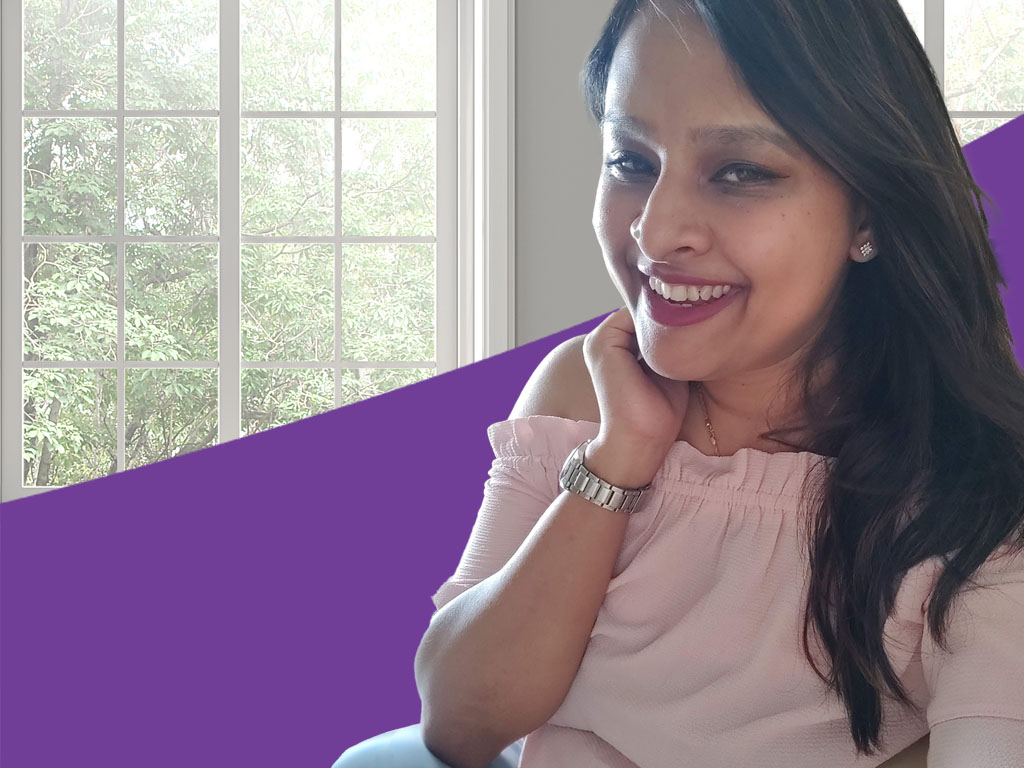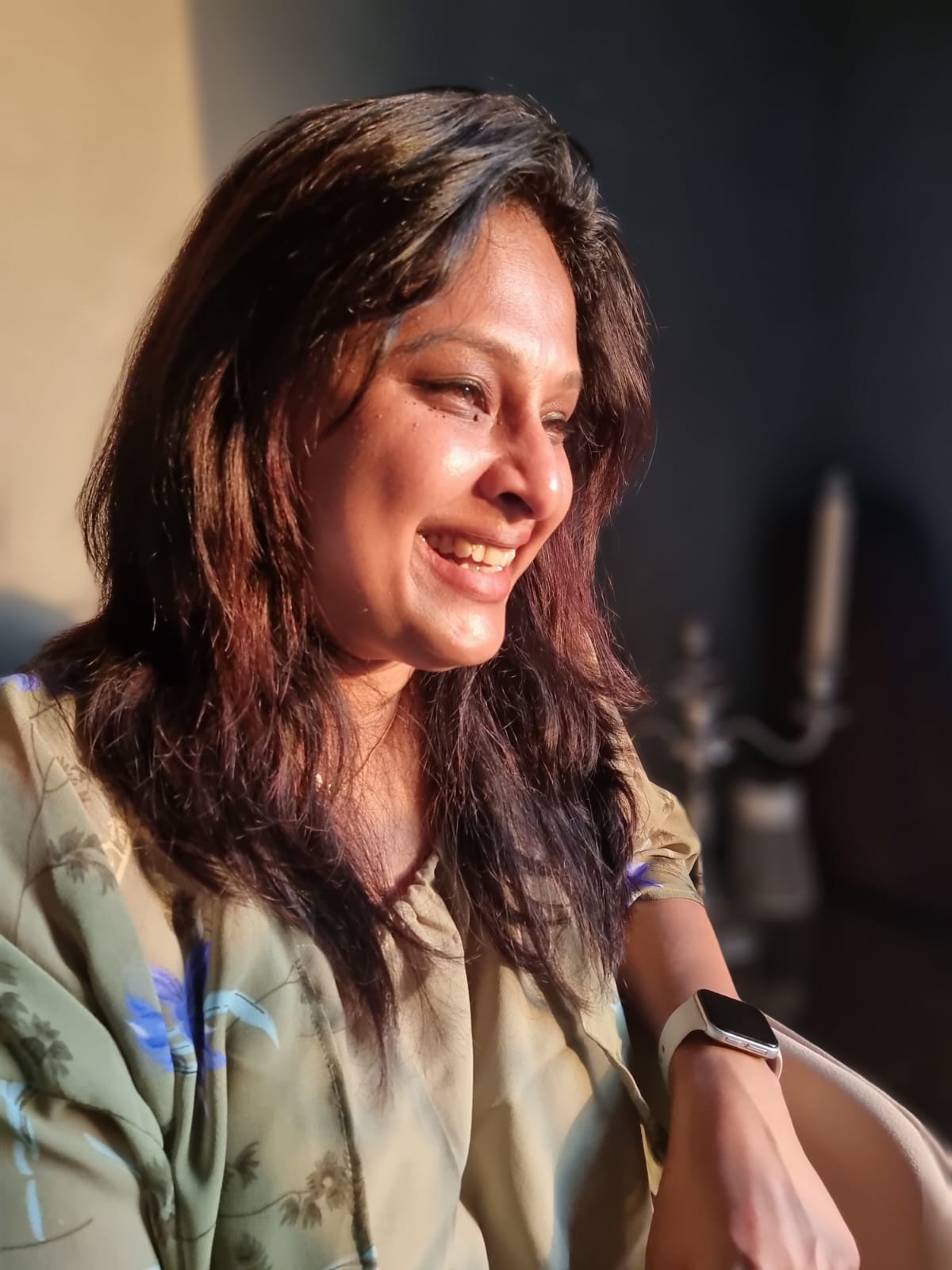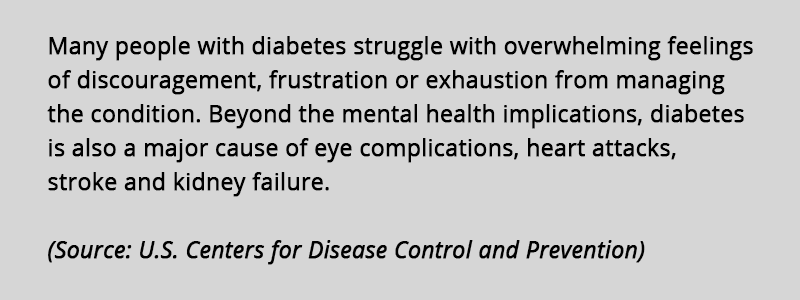Show Menu
Choose Your Location
You are now leaving the Viatris page for a Viatris affiliate site or third party site that is solely responsible for its content, including its compliance with guidelines applicable in certain geographies. Links to Viatris affiliate sites and third party sites are provided as a resource to our visitors and may not be governed by the same regulatory requirements applicable to this site and unaffiliated third party sites are subject to their own terms and data protection notices and practices. Moreover, if their third party site is subject to other country laws, regulatory requirements, data protection requirements or medical practices may differ between countries and the information provided therein may not be suitable for use in your country.

Patient Inspiration
June 14, 2023
By: Niki Kapsambelis
Hear Sairekha in S2E2 of Viatris' Listen Well podcast - out now!
Something felt very wrong in Sairekha Sureshkumar’s young life.
She sensed it in the hushed whispers of adults and in the seemingly endless visits to doctors. There was cause for concern; but at 11, she did not yet fully grasp what it was. The uncertainty was frightening.
“It felt very momentous. I was hospitalized, everyone was upset. I didn’t know what was going on,” Sairekha recalled.
She mulled it over with her cousin. Together, the two children – who lived in India -- concluded that it must be very serious, so they told their neighbors that Sairekha had cancer, the most serious illness they could imagine. When her parents found out, they sat her down to explain what was actually going on: “You have diabetes, sweetheart,” they told her. The information was minimal; for years, Sairekha thought she could eat whatever she wanted as long as she managed to take her insulin shots.
The first time she remembers experiencing a complication was at her wedding ceremony, when blood leaked into one of her eyes. She had developed diabetic retinopathy.
“I think that was the wake-up call for me,” Sairekha said. At 30, nearly two decades into her journey with Type I diabetes, she met with an endocrinologist and said: “I’m in trouble.” She had to start from scratch, learning how to monitor her diet to reduce the likelihood of further complications.

Taking over the job that a healthy pancreas does automatically was exhausting. It became a constant state of problem-solving. Before Sairekha eats a sandwich, she has to know what her current blood sugar level is, then calculate the sugars and carbohydrates in the sandwich, then decide if and when she can eat it. She repeats the process every time she eats something.
Eventually, the effort took a toll on her, and she developed a mindset that she termed “diabetes burnout:” she stopped taking care of herself. For days on end, she would not even glance at her glucose monitor. She would defiantly eat a bag of chips, causing her blood sugar to spike for six hours. She wouldn’t exercise.
“It became a power struggle. I started resenting the power the condition had over my time, over my schedule, over my life,” Sairekha recalled. “Things that I like doing turned into feeling like a chore.”
She was far from alone. According to the U.S. Centers for Disease Control and Prevention, many – if not most -- people with diabetes struggle with similar mental health issues at some point. In any 18-month period, 33 to 50% of people with diabetes experience overwhelming feelings of discouragement, frustration, or exhaustion, a condition collectively termed diabetes distress. These feelings can cause people to slip into unhealthy habits, stop checking their blood sugar or skip doctor’s appointments. The one-two punch of the two conditions can put people at risk for diabetes complications such as heart disease and nerve damage.
Fortunately, Sairekha recognized that she was struggling. Something felt very wrong, just as it had when she was a child.
“There’s this part that knows that you’re harming yourself, so anxiety kicks in,” she said. So she reached out for help from both a nutritionist and a therapist. She also credits her husband, Anoop, and her parents with supporting her during her most difficult days.
It wasn’t easy. She had to work to understand where her power felt displaced and how she could reclaim it. Her therapist explained her symptoms as similar to post-traumatic stress disorder (PTSD).
Her nutritionist helped her take accountability for her actions, while her therapist helped her unpack the deeper issues behind them, asking: Why are you so mad at yourself? Why do you feel powerless?
“I think the biggest learning for me this year and last year is acceptance of the condition,” Sairekha said. “Anxiety is dwelling in the future, thinking, ‘This is the worst thing that’s going to happen to me.’ Acceptance teaches you to live in the present.”
Acceptance also motivates her to do everything she can to improve her odds of avoiding complications by getting regular medical checkups and regulating her blood glucose levels.

In parallel with her efforts to take care of her physical health, Sairekha learned to strive for balance between her inner thoughts and her outward actions: “The outer world is a reflection of your inner,” Sairekha said. “For me, my mental health journey has been like that.”
Her commitment to self care includes moving more and delaying gratification: instead of reaching for a bag of chips, she drinks a glass of water. She began to practice joy by putting on music and dancing, and she makes sure she does something every day that makes her happy. To encourage herself to do things she doesn’t like, she pairs them with things she does: if she’s going for a walk, she listens to a favorite podcast, for example. And she reminds herself that she doesn’t have to deal with every single thing right now.
Sairekha’s message is simple, yet powerful: “What I hope for everybody, whether they’re diabetic or not, is that they will choose to look after themselves, and choose to find reasons why they should.”
